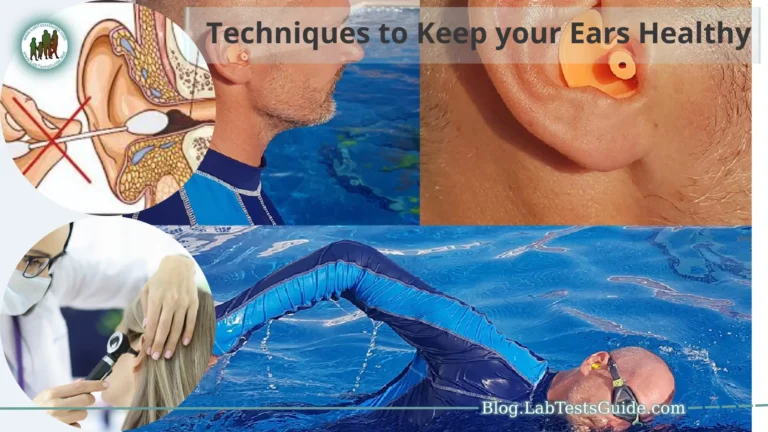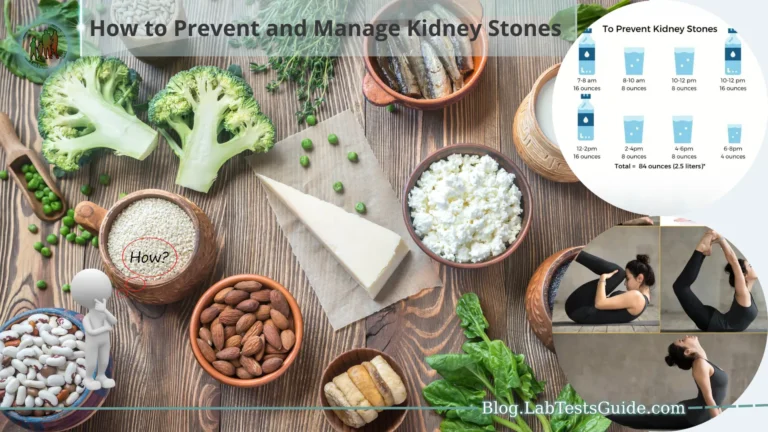Allergies are a common and widespread health concern affecting millions of people worldwide. They occur when the immune system reacts to substances in the environment that are typically harmless for most individuals. These substances, known as allergens, can trigger a range of symptoms and allergic reactions in susceptible individuals.

The types of allergies can vary widely, including allergic reactions to pollen, dust mites, pet dander, certain foods, insect stings, medications, and more. Allergies can manifest in various ways, such as respiratory symptoms (like sneezing, coughing, and wheezing), skin reactions (like itching, hives, and eczema), gastrointestinal symptoms, and even severe and life-threatening reactions known as anaphylaxis.
What is an Allergy?
- Definition: An allergy is an abnormal immune response by the body to substances that are typically harmless to most people. These substances, called allergens, can trigger an allergic reaction in individuals with hypersensitivity.
- Immune System Response: When an allergen enters the body, the immune system of an allergic individual identifies it as a threat and produces specific antibodies, primarily immunoglobulin E (IgE).
- Allergen Recognition: The immune system recognizes the allergen upon subsequent exposure, leading to the release of various chemicals, including histamine, into the bloodstream.
- Symptoms: Allergies can cause a wide range of symptoms, depending on the type of allergy and the body systems affected. Common symptoms include sneezing, itching, nasal congestion, coughing, wheezing, hives, swelling, digestive issues, and in severe cases, anaphylaxis.
- Types of Allergies: Allergies can be categorized into various types, including respiratory allergies (e.g., hay fever), skin allergies (e.g., eczema), food allergies (e.g., peanuts), drug allergies (e.g., penicillin), insect allergies (e.g., bee stings), and more.
- Common Allergens: Allergens can be found both indoors and outdoors. Indoor allergens include dust mites, pet dander, mold spores, and certain foods. Outdoor allergens include pollen from trees, grasses, and weeds, as well as outdoor molds.
- Diagnosis: Allergies are diagnosed through a combination of medical history, physical examination, and allergy testing. Allergy testing may involve skin prick tests, blood tests, or oral food challenges, depending on the suspected allergen.
- Treatment: The primary approaches to managing allergies include avoiding allergens, taking medication to relieve symptoms (e.g., antihistamines, nasal sprays), receiving allergy shots (immunotherapy) for long-term desensitization, and in severe cases, carrying emergency epinephrine (adrenaline) for anaphylaxis.
- Lifestyle Modifications: Individuals with allergies can make certain lifestyle changes to reduce exposure to allergens, such as keeping indoor environments clean, using air purifiers, wearing protective clothing, and modifying dietary choices.
- Allergy Management: It is essential for individuals with allergies to work closely with healthcare professionals, such as allergists or immunologists, to develop a personalized allergy management plan. Regular follow-ups and monitoring can help track progress and adjust treatment strategies if necessary.
How to Identify and Manage Allergy Triggers:
- Keep a Symptom Journal: Start by keeping a detailed record of your allergy symptoms, including the time of day, location, activities, and any potential triggers you suspect. This journal will help identify patterns and potential allergens.
- Consult an Allergist: If your symptoms are persistent or severe, consider consulting an allergist for a comprehensive evaluation. They can perform tests to pinpoint specific allergens and provide guidance on managing your triggers effectively.
- Allergy Testing: Allergy testing methods include skin prick tests, blood tests, and patch tests. These tests can help identify the specific substances you are allergic to, allowing you to take appropriate measures to avoid or manage them.
- Identify Indoor Allergens: Common indoor allergens include dust mites, pet dander, mold, and certain foods. Take steps to reduce exposure by using allergen-proof bedding, regularly vacuuming and dusting, keeping pets out of bedrooms, and addressing moisture issues to prevent mold growth.
- Recognize Outdoor Allergens: Outdoor allergens such as pollen, grass, and weed can trigger allergies. Monitor pollen forecasts, keep windows closed during high pollen seasons, and limit outdoor activities during peak allergen times. Consider using air purifiers with HEPA filters indoors to reduce pollen exposure.
- Food Allergens: If you suspect food allergies, maintain a food diary to track any adverse reactions after consuming specific foods. Elimination diets, where you temporarily remove suspected allergens, can help identify trigger foods. Consult an allergist or dietitian for guidance.
- Medication and Medical Conditions: Some medications and medical conditions can trigger allergic reactions. Make your healthcare provider aware of any allergies or sensitivities you have to avoid potential interactions or complications.
- Allergy-Friendly Home: Create an allergy-friendly environment by regularly cleaning and dusting, using high-efficiency air filters, and keeping humidity levels in check. Consider removing carpeting, which can harbor allergens, and using hypoallergenic cleaning products.
- Allergy Medications: Over-the-counter antihistamines, nasal sprays, and eye drops can help relieve allergy symptoms. Consult a healthcare professional for appropriate recommendations based on your specific needs.
- Immunotherapy: Allergy shots (immunotherapy) may be recommended for severe or persistent allergies. These shots gradually expose your immune system to small amounts of allergens to build tolerance over time.
- Emergency Preparedness: If you have severe allergies, always carry an epinephrine auto-injector (e.g., EpiPen) prescribed by your doctor. Educate yourself and those around you on recognizing and responding to anaphylaxis.
- Work with Healthcare Professionals: Collaborate with allergists, immunologists, and other healthcare professionals to develop an individualized allergy management plan. Regular check-ups and communication will help ensure your plan remains effective.
Understanding Allergy Triggers:
- Definition: Allergy triggers are substances or conditions that provoke an allergic reaction in individuals with allergies. These triggers vary depending on the type of allergy and the individual’s specific sensitivities.
- Common Allergens: Allergens can be found in various forms, including airborne particles, foods, medications, insect stings, and environmental factors. Common allergens include pollen, dust mites, pet dander, mold spores, certain foods (e.g., peanuts, shellfish), latex, certain medications (e.g., penicillin), and insect venom.
- Respiratory Allergens: Many allergies affect the respiratory system. Airborne allergens like pollen, dust mites, pet dander, mold spores, and certain chemicals or irritants can trigger allergic reactions, leading to symptoms such as sneezing, congestion, coughing, wheezing, and shortness of breath.
- Food Allergens: Food allergies involve an immune response to specific proteins in certain foods. Common food allergens include peanuts, tree nuts, eggs, milk, wheat, soy, fish, and shellfish. Ingesting or coming into contact with these allergens can cause symptoms ranging from mild digestive discomfort to severe allergic reactions.
- Skin Allergens: Skin allergies can occur due to direct contact with certain substances or materials. These include allergens like poison ivy, latex, certain metals (e.g., nickel), and certain skincare products or cosmetics. Contact dermatitis, hives, or eczema may result from exposure to these triggers.
- Environmental Triggers: Environmental factors can worsen allergy symptoms. These include air pollution, strong odors, cigarette smoke, cold air, and high humidity levels. While they may not cause allergies directly, they can exacerbate existing allergic reactions.
- Seasonal Allergens: Certain allergens are more prevalent during specific seasons. For example, tree pollen is common in spring, grass pollen in summer, and ragweed pollen in fall. Understanding seasonal patterns can help individuals with seasonal allergies better manage their symptoms.
- Cross-Reactivity: Cross-reactivity occurs when the immune system recognizes similar proteins in different allergens. For example, individuals with birch pollen allergy may experience oral allergy syndrome when eating certain fruits like apples or pears due to cross-reactivity.
- Occupational Allergens: Some individuals develop allergies due to exposure to allergens in their workplace. These can include chemicals, dust, fumes, or animal-derived substances. Common occupations with potential allergen exposure include healthcare workers, hairdressers, farmers, and laboratory workers.
- Individual Variations: Allergy triggers can vary among individuals. One person may be sensitive to pollen, while another may have a severe reaction to certain foods. It is essential to identify specific triggers for each person and tailor management strategies accordingly.
Preventive Measures for Allergies:
Allergy-Proof Your Home:
- Keep indoor spaces clean and dust-free by regularly vacuuming, dusting, and using allergen-proof bedding covers.
- Minimize carpeting, as it can harbor allergens. Opt for hard flooring surfaces that are easier to clean.
- Control humidity levels in your home to prevent mold growth. Use dehumidifiers in damp areas and ensure proper ventilation.
- Keep pets out of bedrooms and off furniture, as pet dander is a common allergen.
Minimize Exposure to Allergens:
- Stay indoors during peak pollen times, especially on windy days. Keep windows closed and use air conditioning with HEPA filters.
- Use high-efficiency particulate air (HEPA) filters in vacuum cleaners and air purifiers to trap allergens.
- Wash bedding regularly in hot water to eliminate dust mites. Consider using allergen-proof covers for pillows and mattresses.
- Avoid outdoor activities that may expose you to allergens, such as mowing the lawn or gardening, especially during high pollen seasons.
- Wear a mask when doing activities that may stir up allergens, like cleaning or dusting.
Improve Indoor Air Quality:
- Ventilate your home properly to reduce indoor air pollutants. Open windows when weather and pollen counts permit.
- Avoid smoking or allowing others to smoke inside your home, as it can worsen allergy symptoms.
- Use natural, fragrance-free cleaning products to reduce exposure to chemical irritants.
- Regularly change air filters in heating and cooling systems to maintain clean air circulation.
Pollen Tracking and Avoidance:
- Stay informed about pollen forecasts and allergen levels in your area. Limit outdoor activities when pollen counts are high.
- When spending time outdoors, consider wearing sunglasses and a hat to protect your eyes and prevent pollen from coming into contact with your hair and face.
- After spending time outside, change your clothes and shower to remove any pollen that may have accumulated on your body and hair.
Food Allergy Prevention Strategies:
- If you or your child has a known food allergy, read food labels carefully and avoid products that contain the allergen.
- Inform restaurant staff about any food allergies before ordering, and ask about food preparation methods to prevent cross-contamination.
- Pack allergen-free snacks and meals when traveling or attending events where food options may be limited.
Managing Allergic Reactions:
Over-the-Counter Allergy Medications:
- Antihistamines: These medications block the effects of histamine, a chemical released during allergic reactions, and can help relieve symptoms like sneezing, itching, and runny nose.
- Decongestants: Decongestants help reduce nasal congestion and sinus pressure, but they should be used for short durations as long-term use can lead to rebound congestion.
- Nasal Sprays: Nasal corticosteroid sprays can effectively reduce inflammation in the nasal passages and alleviate symptoms like congestion and sneezing.
- Eye Drops: Over-the-counter eye drops can provide relief for itchy, red, and irritated eyes caused by allergies.
Prescription Medications for Allergies:
- Prescription Antihistamines: Stronger antihistamines may be prescribed for severe allergies or when over-the-counter options are not effective enough.
- Nasal Corticosteroids: Prescription-strength nasal sprays can help control more severe nasal allergy symptoms and reduce inflammation.
- Leukotriene Modifiers: These medications work by blocking the effects of leukotrienes, chemicals released during allergic reactions that cause inflammation.
- Immunomodulators: Topical immunomodulators, such as creams or ointments, can be prescribed for managing allergic skin reactions like eczema.
Allergy Shots (Immunotherapy):
- Immunotherapy involves gradually exposing the body to increasing amounts of allergens to build tolerance and reduce the allergic response over time.
- Allergy shots are a common form of immunotherapy and are effective in treating respiratory allergies, such as hay fever. They are administered by a healthcare professional.
Emergency Preparedness for Severe Allergies:
- For individuals with severe allergies, it is crucial to carry an epinephrine auto-injector (e.g., EpiPen) at all times and know how to use it in case of anaphylaxis, a severe and potentially life-threatening allergic reaction.
- Educate family members, friends, and co-workers about your allergies and how to respond in case of an emergency.
Natural Remedies and Complementary Therapies:
- Some individuals find relief from allergy symptoms through natural remedies such as nasal saline rinses, herbal supplements (e.g., butterbur), and alternative therapies like acupuncture or homeopathy. Consult with a healthcare professional before trying any natural remedies.
Lifestyle and Dietary Modifications:
- Identify and avoid triggers: Determine the specific allergens that trigger your allergies by consulting with an allergist. Common allergens include pollen, dust mites, pet dander, mold, certain foods, and insect bites. Once identified, take steps to minimize exposure to these triggers. For example, use allergy-proof bedding, keep windows closed during high pollen seasons, and avoid foods that cause allergic reactions.
- Maintain a clean environment: Regularly clean your living space to minimize allergen exposure. Vacuum frequently using a vacuum cleaner equipped with a HEPA filter to trap allergens. Dust surfaces, wash bedding in hot water, and keep humidity levels below 50% to prevent mold growth.
- Use air purifiers: Consider using air purifiers with HEPA filters to remove allergens from the air in your home. This can be particularly helpful for individuals with indoor allergies.
- Practice proper hygiene: Wash your hands frequently, especially before eating, to prevent the spread of allergens. Shower and change clothes after spending time outdoors to remove pollen from your body and prevent it from spreading in your home.
- Be mindful of pet allergies: If you have allergies to pet dander, avoid or limit exposure to animals that trigger your symptoms. Keep pets out of bedrooms and off furniture, and wash your hands after handling them. Consider hypoallergenic breeds or alternatives like fish or reptiles.
- Wear protective clothing: When doing yard work or other activities that may expose you to allergens, wear a mask, gloves, and long-sleeved clothing to minimize contact with potential triggers.
- Monitor pollen forecasts: Stay informed about pollen levels in your area and plan outdoor activities accordingly. Try to limit outdoor exposure during peak pollen times, such as early morning or windy days.
- Dietary modifications: In some cases, certain foods can exacerbate allergy symptoms or cause allergic reactions. If you have identified food allergies, strictly avoid those foods. Additionally, incorporating a balanced diet rich in fruits, vegetables, and omega-3 fatty acids may help support a healthy immune system.
- Consider immunotherapy: Allergen immunotherapy, such as allergy shots or sublingual tablets, can be an effective long-term treatment for allergies. Consult an allergist to determine if immunotherapy is suitable for you.
- Have an emergency plan: If you have severe allergies, it’s important to have an emergency plan in place. Carry epinephrine auto-injectors (e.g., EpiPen) if prescribed, inform friends, family, and coworkers about your allergies, and educate yourself and others on how to recognize and respond to an allergic reaction.
Allergy Management for Specific Groups:
Children:
- Identify and avoid common allergens in children’s environments, such as dust mites, pet dander, and certain foods.
- Teach children proper hand hygiene and encourage them to avoid sharing food and drinks with others.
- Inform teachers, caregivers, and school staff about your child’s allergies and provide them with necessary medications, such as antihistamines or epinephrine auto-injectors.
- Teach children how to recognize and communicate their allergy symptoms.
Pregnant women:
- Consult with an allergist before taking any allergy medications during pregnancy to ensure they are safe for both you and the baby.
- Minimize exposure to allergens by maintaining a clean environment and avoiding known triggers.
- If possible, avoid unnecessary medical procedures or tests that may expose you to allergens.
- Discuss any concerns or potential allergies with your healthcare provider during prenatal visits.
Older adults:
- Be aware that allergies can develop at any age, even if you have not experienced them before.
- Regularly review medications with a healthcare professional, as certain medications can worsen allergy symptoms or interact with allergy medications.
- Stay up to date on vaccinations, such as the flu shot, to prevent respiratory infections that can aggravate allergies.
- Maintain a healthy lifestyle with a balanced diet, regular exercise, and adequate hydration to support immune system function.
Athletes and outdoor enthusiasts:
- Pay attention to outdoor air quality and pollen forecasts before engaging in outdoor activities.
- Consider wearing a mask or scarf over the nose and mouth to filter out allergens during exercise.
- Take showers and change clothes immediately after outdoor activities to remove allergens from the body.
- Consult with a healthcare professional to develop an allergy management plan tailored to your specific needs.
Occupational allergy sufferers:
- Identify allergens in your workplace and take steps to minimize exposure. This may involve wearing protective clothing, using personal protective equipment, or modifying the work environment.
- Communicate your allergies to your employer and coworkers, so they can be aware and support your efforts to avoid triggers.
- Seek medical advice and consider occupational allergy testing if you suspect your symptoms are work-related.
- Follow your employer’s health and safety guidelines and consult with an occupational health specialist, if available.
Seeking Professional Help:
- Allergist consultation: Start by consulting with an allergist, who specializes in diagnosing and treating allergies. An allergist can conduct tests to identify specific allergens that trigger your symptoms and provide personalized advice and treatment options.
- Medical history and symptom evaluation: Provide your allergist with a detailed medical history, including any past allergic reactions or family history of allergies. Describe your symptoms, their frequency, and any triggers you have identified.
- Allergy testing: Allergists may use various tests to determine the specific allergens causing your symptoms. These tests can include skin prick tests, blood tests (such as IgE-specific antibody tests), or oral food challenges. The results will help guide your allergist in developing an appropriate management plan.
- Treatment options: Based on your test results and the severity of your allergies, your allergist may recommend different treatment options, which can include:
- Medications: Antihistamines, nasal corticosteroids, decongestants, and other medications can help alleviate allergy symptoms. Your allergist will prescribe the appropriate medication and dosage based on your specific needs.
- Allergen immunotherapy: This treatment involves gradually exposing the body to small amounts of allergens to desensitize the immune system over time. It can be administered through allergy shots (subcutaneous immunotherapy) or under-the-tongue tablets or drops (sublingual immunotherapy).
- Emergency medication: If you have severe allergies, your allergist may prescribe an epinephrine auto-injector (such as an EpiPen) and provide instructions on how and when to use it in case of a severe allergic reaction (anaphylaxis).
- Follow-up visits: Regularly schedule follow-up visits with your allergist to monitor your progress, adjust treatment plans if needed, and address any concerns or new developments related to your allergies.
- Collaborate with other healthcare professionals: In some cases, your allergist may refer you to other healthcare professionals, such as a nutritionist, respiratory therapist, or dermatologist, to provide comprehensive care for managing your allergies.
Dealing with Emotional Impact and Support:
- Educate yourself: Learn about allergies, their causes, and treatment options. Understanding your condition can help you feel more empowered and in control.
- Seek emotional support: Share your experiences with family, friends, or support groups who can provide understanding, empathy, and encouragement. Connect with online communities or local support groups for individuals with allergies.
- Communicate with loved ones: Educate those close to you about your allergies, their potential severity, and necessary precautions. Clear communication can help prevent misunderstandings and ensure they are aware of how to support you.
- Manage stress: Stress can worsen allergy symptoms. Practice stress management techniques such as deep breathing, meditation, yoga, or engaging in hobbies and activities you enjoy.
- Practice self-care: Take care of your overall well-being by prioritizing self-care activities. This includes maintaining a healthy lifestyle, getting adequate sleep, eating a balanced diet, and engaging in regular physical activity.
- Plan ahead: When participating in social activities or travel, plan ahead to minimize allergen exposure. Research allergy-friendly restaurants, pack necessary medications, and communicate your allergies to event organizers or travel companions.
- Develop coping strategies: Find strategies that help you cope with allergy symptoms. This can include using relaxation techniques, distraction methods, or engaging in activities that bring you joy and take your mind off the symptoms.
- Consult a mental health professional: If you experience significant emotional distress related to your allergies, consider seeking help from a mental health professional. They can provide guidance, support, and strategies for managing anxiety or depression associated with allergies.
- Keep a journal: Document your symptoms, triggers, and emotional experiences in a journal. This can help you identify patterns, track progress, and provide a way to express your feelings.
- Stay positive and maintain perspective: While allergies can be challenging, try to maintain a positive outlook and focus on the aspects of your life that are not affected by allergies. Remember that managing allergies effectively can lead to improved quality of life.
FAQs:
Can allergies be prevented?
While allergies cannot always be prevented, you can take steps to reduce your exposure to allergens and minimize the risk of developing allergies. Avoiding known triggers, keeping a clean environment, and practicing good hygiene are effective preventive measures.
What are the common allergens that cause allergies?
Common allergens include pollen, dust mites, pet dander, mold spores, certain foods (such as peanuts, tree nuts, dairy, eggs, wheat, soy, fish, and shellfish), insect venom, and medications (such as antibiotics or NSAIDs).
How can I identify my specific allergens?
Consult with an allergist who can conduct tests, such as skin prick tests or blood tests, to identify the specific allergens causing your symptoms. They will review your medical history and symptoms to guide the testing process.
Are there any dietary modifications to help manage allergies?
If you have identified food allergies, strict avoidance of those foods is crucial. Additionally, maintaining a balanced diet rich in fruits, vegetables, and omega-3 fatty acids may support a healthy immune system and potentially help manage allergies.
Can allergies be outgrown?
While some allergies, especially those to certain foods, can be outgrown, others may persist throughout life. It is essential to work with an allergist to monitor and determine if an allergy has resolved or if continued management is necessary.
What is allergen immunotherapy?
Allergen immunotherapy, also known as allergy shots or sublingual tablets/drops, involves gradually exposing the body to small amounts of allergens to desensitize the immune system. It can be an effective long-term treatment option for certain allergies.
Can medications help manage allergies?
Yes, various medications can help manage allergy symptoms. These include antihistamines, nasal corticosteroids, decongestants, and eye drops. Your allergist can recommend the appropriate medications based on your specific symptoms and needs.
Are there any natural remedies for managing allergies?
Some individuals find relief from allergies through natural remedies like saline nasal rinses, herbal supplements (e.g., butterbur), and local honey. However, it’s important to consult with an allergist before trying natural remedies, as their effectiveness may vary, and some may have potential side effects or interactions.
Can stress worsen allergy symptoms?
Yes, stress can exacerbate allergy symptoms. Finding effective stress management techniques, such as exercise, relaxation techniques, or counseling, can help in managing both stress and allergies.
When should I seek medical help for my allergies?
It is recommended to consult with an allergist if you experience persistent or severe allergy symptoms, have had an anaphylactic reaction, or suspect new allergies. An allergist can provide a proper diagnosis, treatment plan, and ongoing support.
Conclusion:
Preventing and managing allergies involves a combination of lifestyle modifications, such as identifying and avoiding allergens, maintaining a clean environment, and practicing proper hygiene. Seeking professional help from allergists and healthcare providers is crucial for accurate diagnosis, personalized treatment plans, and ongoing support. Additionally, emotional support, self-care practices, and stress management techniques can help individuals cope with the emotional impact of allergies. By taking proactive measures, staying informed, and seeking appropriate support, individuals can effectively prevent and manage allergies, leading to improved quality of life.






